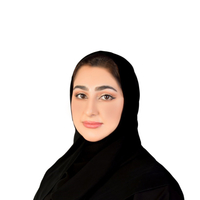Crafting Futures with Cultural Threads
- Asma Y. Zainal

- Dec 13, 2023
- 4 min read

Recognizing the complex tapestry of human culture that shapes our shared experience is crucial as we navigate the currents of change and gaze out to vistas of the futures. Our joint endeavor to navigate potential futures involves fusing together many traditions, values, and perspectives from all around the world. A genuinely anticipatory approach to futures, which aims to incorporate the knowledge and understanding of all civilizations into a common story of development, is based on this rich plurality. Here, we set out to investigate how such complex futures may be imagined and designed, making sure that the fabric we weave is as varied and ever-changing as humankind itself.
The Global Foresight Paradox
The process of projecting future events to steer humankind toward growth and sustainability is known as global foresight. But there is a big dilemma in this subject that has its roots in cultural diversity. Although the goal of foresight is to prevent crises and achieve global progress, it frequently represents a limited cultural perspective that has been primarily molded by civilizations that have evolved industrially and technologically. This strategy may result in a future vision that is more in line with the goals and life experiences of the Minority world, marginalizing the complex stories of the majority. In order to ensure that our work in the fields of global future and cultural foresight is inclusive and representative of the rich tapestry of human experiences, it is imperative that we, as practitioners, critically evaluate whose interests are served by our models and predictions.
Understanding the Global Foresight Paradox requires acknowledgment that the instruments and processes used in foresight are not culturally neutral. If these methods are not challenged, they may promote a homogenized future vision that fails to represent the diversity of the world. It is a mistake - a failure - to recognize the diversity of human experience when only one cultural narrative is projected into the collective future.
To address this dilemma, it is essential to increase the diversity of voices in the foresight process, integrating thoughts from various cultural backgrounds and going beyond echo chambers. This will support an ecosystem of foresight that is egalitarian, representative, and sensitive to the diverse ways societies anticipate their well-being and advancement. As subject matter experts, it is our responsibility to incorporate a variety of cultural inputs into scenario planning and strategic foresight ensuring the quality of our foresight efforts and the ethical need for inclusion.
Cultural Myopia - A Threat to Diversity
Cultural myopia is a global issue that hinders the diversity[TL1] , reduces creativity and innovation of our world and restricts the creation of inclusive futures. It is a result of global foresight projects that prioritize a narrow range of cultural norms and expectations over diverse human experiences and value systems. This lack of broad vision often results from unconscious biases associated with prevailing cultural myths, which are shaped by the Global Minority.
This narrow perspective can lead to imposing homogenous solutions on complex issues while ignoring the cultural settings that distinguish communities from each other. Cultural myopia has severe consequences, as it reduces the relevance and efficacy of foresight strategies, obstructing diverse expertise and perspectives. To combat cultural myopia, it is crucial to incorporate a variety of cultural lenses into foresight work, including ethnographic studies, conversations with cultural academics and community leaders, and integrating local histories and ideologies into analytical models. This will help us understand the ways different communities define development, prosperity, and well-being.
Decolonizing the Future
Global foresight is a crucial field that requires inclusion and decolonization to achieve long-term, practical future planning. This process involves acknowledging and actively demolishing inequalities that have long shaped the field of foresight, a process known as the "Decolonization of the Future." Decolonizing foresight involves cultural and intellectual humility, realizing and accepting that there are various legitimate future viewpoints, each influenced by its own culture, history, and goals. This integration contests the primacy of any single worldview and promotes a polycentric method of foresight, where several spheres of influence contribute equally to the development of a common global vision.
There are examples of locally-driven inventions with global ramifications based on indigenous knowledge or traditional practices.. These inventions often result from a deep awareness of the regional environment and a long-standing custom of adaptation and care. For example, Indigenous groups' extensive knowledge about plant-based medicines has led to medical advancements beneficial to all mankind.
Promoting diverse futures means realizing that cultural variety can be used as a resource rather than a barrier to be surmounted. The resilience and flexibility sought in a world of unprecedented difficulties may be found in the multitude of strategies mankind has developed to survive and prosper around the globe. As practitioners of global foresight, it is our responsibility to ensure that the futures we create are replete with the knowledge and understanding of all civilizations.
Embracing a Pluralistic Vision
A future that is inclusive and rich in culture requires a dynamic dialogue among the many voices of the globe. This involves weaving together insights from participatory foresight, alternative knowledge systems, and co-creation of strategies. Breaking down the western-centric cultural hegemony is crucial to plant the seeds of inclusive futures that belong to all people. The diversity of human experience stimulates creativity and flexibility, allowing for robust and sustainable futures. Pursuing a practice of foresight that is as diverse as the world it serves is essential. Global foresight fosters a pluralistic worldview that values the distinctive contributions of different cultures while paving the way towards a common ground. The fabric we create with an inclusive global vision will showcase the diversity and vitality of the human race, supporting futures that value diversity while highlighting our common humanity.









Comments